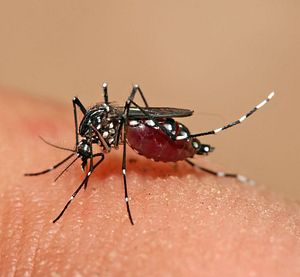There has been a flurry of activity behind the scenes in ASEAN as health authorities and regulators respond to the long-awaited World Health Organization (WHO) position paper on dengue, released in late July.
The WHO paper supports the use of a vaccine to help prevent dengue as part of a comprehensive dengue control strategy in each country, especially in areas where there is a high burden of disease.
The vaccine is seen by many as a potential global game changer, particularly when used as recommended by the WHO in combination with well-executed and sustained vector control, evidence-based best practices for clinical care for all patients with dengue illness, and strong dengue surveillance,
Game Changer
While the Zika virus has captured the attention of the media this year, dengue is the fastest growing mosquito-borne disease in the world, causing nearly 400 million infections every year. In the last 50 years, dengue has spread from being present in a handful of countries to being endemic in 128 countries where around 4 billion people live. Dengue incidence has increased 30-fold in this time.
Significantly, Asia currently bears 70 percent of the world’s dengue burden, something health officials and regulators are very aware of. In the Philippines alone 200,000 cases of dengue were reported in 2013. This year the trend has continued. Similarly, in Singapore, the number of dengue fever cases eclipsed 10,000 by the end of July as cases increase weekly in the traditional peak dengue season. Authorities estimate that 30,000 cases of dengue may occur during 2016.
In the past, the traditional strategies for controlling the spread of dengue have been limited because there is no known cure for the disease, and vector control has been shown to give variable results. Add into the mix the increasing mobility of populations within the region through international air travel, with lower ticket prices and increased connectivity through low cost carriers, and it is easy to see how something new to combat the disease, which has spread so rapidly in the last 20 years, is likely to attract the attention of health officials and politicians alike.
It’s not just the severe medical burden that is exercising the minds of regulators and politicians. The pure economic cost is also extremely large and growing. Worldwide, dengue disease is estimated to cost about $9 billion annually, and in Southeast Asia, the economic toll from dengue was estimated at almost $1 billion on average per year from 2001 to 2010.
With so much at stake and big decisions to be made, it is understandable that great care is being taken in many countries to ensure expenditure on a dengue vaccine is targeted, economical, and effective.
While the WHO stresses the final decision on the size and shape of vaccination programs should be left for each country to decide, its guidance remains an important framework within which to operate. The WHO recommends vaccination of populations up to 45 years of age in countries with the highest incidence of dengue illness among adults. The vaccine is not recommended for use in children under 9 years of age and in special populations such as pregnant and lactating women, HIV-infected individuals, travelers, and healthcare workers. The recommendation relating to young children aligns with the manufacturer’s own age indication for the vaccine.
Public Vaccinations Set to Grow?
Public vaccination began in the Philippines in April, where the government embarked on an ambitious program to vaccinate one million schoolchildren. Almost half a million eligible children have already received the first of the three-dose schedule without any reports of serious adverse events.
In August, the federal government of Brazil had approved a public vaccination program in the Parana state targeting 500,000 residents in the 30 most highly endemic municipalities. Shortly afterwards, in September, three of the most important medical associations in Brazil came out to recommend the dengue vaccine. The endorsement from the Sociedade Brasileira de Imunização (Brazilian Society of Immunizations), Sociedade Brasileira de Pediatria (Brazilian Society of Pediatrics), and the Sociedade Brasileira de Doenças Infeciosas (Brazilian Society of Infectious Diseases) reflects concern at the spiraling cost of the disease, which one study published in the Brazilian Journal of Health Economics estimated could reach $1.2 billion a year.
Countries where the vaccine is registered are reviewing options for public vaccination programs, and other countries are expected to follow suit when their procedures for licensing the vaccine are completed.
Nine countries have now approved the licensure (registration) of the new dengue vaccine – five of these before the WHO paper was formally published. With more than 20 governments looking closely at the introduction of a dengue vaccine, more are expected to follow quickly.
Professor Tikki Pang is presently Visiting Professor at Lee Kuan Yew School of Public Policy, National University of Singapore. He was previously Director or Research Policy & Cooperation at the World Health Organization (WHO), Geneva, Switzerland

































